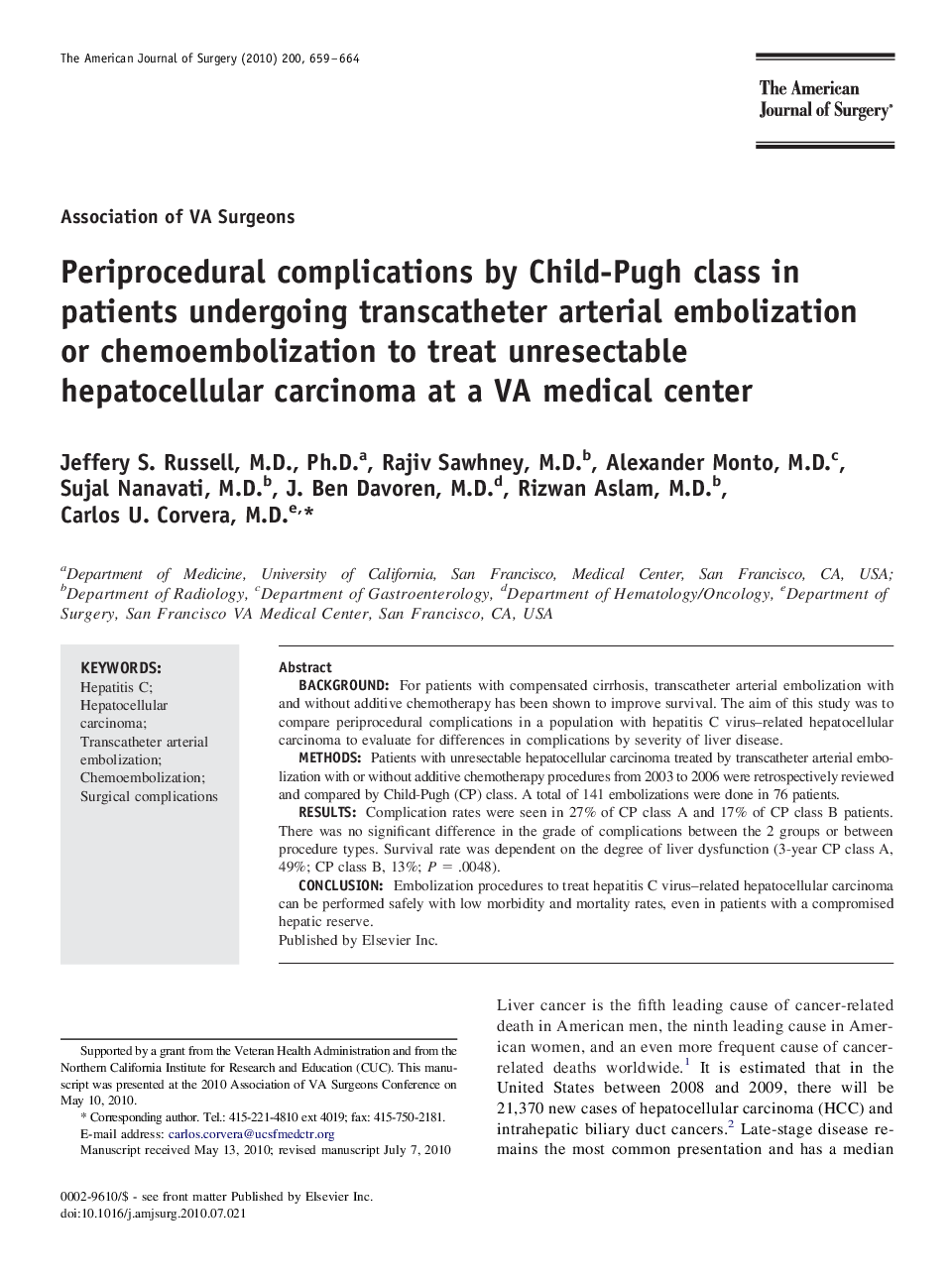| Article ID | Journal | Published Year | Pages | File Type |
|---|---|---|---|---|
| 4280159 | The American Journal of Surgery | 2010 | 6 Pages |
BackgroundFor patients with compensated cirrhosis, transcatheter arterial embolization with and without additive chemotherapy has been shown to improve survival. The aim of this study was to compare periprocedural complications in a population with hepatitis C virus–related hepatocellular carcinoma to evaluate for differences in complications by severity of liver disease.MethodsPatients with unresectable hepatocellular carcinoma treated by transcatheter arterial embolization with or without additive chemotherapy procedures from 2003 to 2006 were retrospectively reviewed and compared by Child-Pugh (CP) class. A total of 141 embolizations were done in 76 patients.ResultsComplication rates were seen in 27% of CP class A and 17% of CP class B patients. There was no significant difference in the grade of complications between the 2 groups or between procedure types. Survival rate was dependent on the degree of liver dysfunction (3-year CP class A, 49%; CP class B, 13%; P = .0048).ConclusionEmbolization procedures to treat hepatitis C virus–related hepatocellular carcinoma can be performed safely with low morbidity and mortality rates, even in patients with a compromised hepatic reserve.
